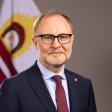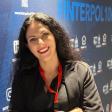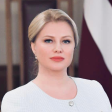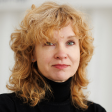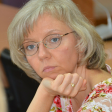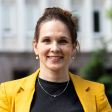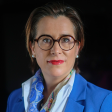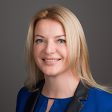PLACES
The 4th International Interdisciplinary Conference
FREEDOM AND/OR SECURITY?
26–28 March 2025 in person & online
16 Dzirciema iela, Riga (Senate Hall, Room K-201)
PLACES - Political Science, Law, Anthropology, Communication, Economics and Business, Sociology – a part of the Rīga Stradiņš University Research Week, is a biennial event of academic exchange and knowledge sharing that provides a room for discussions on the newest achievements in political science, law, anthropology, communication, economics and business, sociology, and other social science disciplines.
Invitation
At the beginning of the 21st century, Zygmunt Bauman wrote the following in his book Community: Seeking Safety in an Insecure World (2001:4): “Security and freedom are two equally precious and coveted values which could be better or worse balanced, but hardly ever fully reconciled and without friction.” Today, this conceptualisation is important more than ever, as the sense of insecurity is spreading among societies, and social scientists are challenged by the need to rethink the value orientations of their work. The 4th International Interdisciplinary Conference PLACES aims to address this tension.
The current decade has been marked by the crises that have confronted global society – the global COVID pandemic, Russia's war of aggression in Ukraine, the rise of far-right populism and the ongoing climate crisis are just some of the loud examples of the challenges that need to be addressed. On the one hand, the scale, depth, and nature of the permacrises we are witnessing, both globally and locally, make it clear that not only are we unprepared for many of these crises, but that addressing them may require an entirely new way of thinking about solutions. On the other hand, some of these solutions seemingly require curtailing individual and collective freedoms in the name of putative security. Shifting the focus from averting crises to ways of strengthening collective resilience to withstand challenges, identifying new mitigating measures, increasing the speed at which novel solutions can be found, and rethinking centre-periphery relations constitute the core topics and questions of this conference.
How should freedom and security be balanced when engaging society and strengthening solidarity to ensure that groups in society can mobilize to respond to emerging threats rapidly? How can we achieve the level of trust and mutual support that can be used as a basis for increasing the effectiveness of any? Whose freedom and whose security are enhanced, and whose are restrained in these processes?
To engage with these challenges, PLACES proposes to address two questions:
- What tools, good examples and opportunities can be observed, described, or proposed while engaging with permacrises?
For decades, practitioners and researchers in various fields have been accumulating empirical and theoretical evidence on how best to address various threats. There is a need for an inventory of existing promising solutions so that society can fully benefit from the accumulated knowledge. Meanwhile, the rapid development of technologies has created a wide range of new opportunities—some of which seem to promise solutions, and others may help humanity develop new ways of working more effectively on issues related to the Grand Challenges.
- What are the trade-offs and threats associated with the need to address the changing world?
It is now also clear that solutions that are implemented but not fully understood can be a source of even deeper challenges. On the one hand, they themselves can be a source of long-term future threats. On the other hand, they also have the potential to sow division, mistrust, and polarization in society. For example, digital transformation continues to create a deep digital divide between social groups, leading to various social cleavages and inequalities. Meanwhile, the flagship policies developed to address the climate crises threaten to distribute the required costs unevenly, deepening the already existing divisions and creating new ones. The cracks in the social fabric created by these tensions may reduce the solidarity required for any effective response to the challenges facing society.
The 4th International Interdisciplinary Conference PLACES invites speakers from a variety of disciplines (political science, anthropology, sociology, management, law, economics, etc.) to discuss these and other related questions, presenting new empirical material as well as case studies and theoretical insights addressing global, regional and national attempts to address and cope with contemporary challenges while illuminating the ways of and tensions in the process of balancing freedom and security.
Main Topics
- Academic freedom
- Green transition & homo climaticus
- Media freedom
- Security crises in NATO & EU
- Autonomy in medical humanities
- Legal aspects of freedom & security
- Expectations towards food
Keynotes
26 March 17:00 @ RSU Senate Hall, 16 Dzirciema iela
Public Service Media in Europe: Systemic and Cultural Conditions of Media Capture in the Age of Platforms
27 March 9:05 @ RSU Senate Hall, 16 Dzirciema iela
Minister's Opening Keynote
28 March 9:10 @ RSU Senate Hall, 16 Dzirciema iela
Six Rules for a Just Energy Transition
Invited Speakers
26 March 9:20 @ RSU Senate Hall, 16 Dzirciema iela
PLACES Opening Plenary
26 March 11:00 @ RSU Senate Hall, 16 Dzirciema iela
Tiesiskās sistēmas pienācīga reaģēšana uz valsts pastāvēšanai būtisko vērtību apdraudējumiem
Panels
- 26 March. Opening Plenary
Venue: Senate Hall, RSU, 16 Dzirciema iela
Moderator: Mārtiņš Daugulis (Latvia) 9:00–9:20 Opening Remarks
Karina Palkova, Dean of the Faculty of Social Sciences, Rīga Stradiņš University
Agrita Kiopa, Vice-Rector for Science, Rīga Stradiņš University
Ieva Puzo, Head of Social Sciences Research Centre, Rīga Stradiņš University9:20–10:30 PLACES Opening Plenary
Rico Isaacs, Aija Lulle, Ilze Znotiņa- 26 March. How to Ensure Freedom Without Losing Security—Legal Aspects and Practical Problems
Convener: Assoc. Prof. Inga Kudeikina
In contemporary society, a crucial challenge exists - balancing individual freedom with the need to ensure security. Increasingly, we encounter situations where legal solutions are sought to protect individual rights while simultaneously guaranteeing the security of the state and society. The conference will feature leading experts from various fields, including legal science, internal security, human rights, and technology. Our discussion aims are to:
- Explore the legal frameworks that regulate freedom and security;
- Analyze the practical problems arising from the implementation of security measures;
- Discuss best practices and innovative solutions to ensure compliance with rights and freedoms;
- Promote international cooperation and exchange of experiences
Invited speaker
- Oral presentation
Venue: Senate Hall, RSU, 16 Dzirciema iela
Session I: How To Ensure Freedom Without Losing Security—Legal Aspects And Practical Problems
Moderator: Inga Kudeikina (Latvia)11:00–11:30 Tiesiskās sistēmas pienācīga reaģēšana uz valsts pastāvēšanai būtisko vērtību apdraudējumiem
Irēna Kucina11:30–11:40 Possibilities for Improving the Procedure for Resolving Disputes Between Constitutional State Authorities
Jānis Neimanis11:40–11:50 No Freedom Without Democracy: The Loss of Latvia's Independence in 1940
Jānis Grasis11:50–12:00 Security in Risk Society: Bridging the Ideal and the Real
Kristīne Kuzņecova12:00–12:10 Is Duty a Restriction of Freedom?
Ilze Ziemane12:10–12:20 Aspects of Terrorism Prediction in the Context of Public Security Threats and Risk Prevention
Andrejs Vilks12:20–13:30 Break Session II: How To Ensure Freedom Without Losing Security—Legal Aspects And Practical Problems
Moderator: Inga Kudeikina (Latvia)13:30–13:40 Criminalization of “Information Collaborationism” in Ukraine as an Example of Lawful Restriction of the Right to Freedom of Speech Under Martial Law
Yuliia Zabuha13:40–13:50 Illegal Occupation and the Intent of Genocide: An Israeli-Palestinian Case
Sintija Broka13:50–14:00 Professional Development of Managerial Personnel in the Civil Service as a Component of the National Security of Ukraine
Alona Lukashenko14:00–14:10 (Non)Observing the Rights of the Combatant to Health in Captivity: The Experience of the Russian-Ukrainian War
Tetiana Mykhailichenko14:10–14:20 The Invisible Threat for Personal Safety: Fakes Prevention in Ukraine and Europe
Alina Kalinina14:20–14:30 Interdependence Between the State of Crime and the Normative Issues of the Status of Victims of Armed Conflict (On the Example of Ukraine)
Alina Kalinina14:30–14:45 Break Session III: How To Ensure Freedom Without Losing Security—Legal Aspects And Practical Problems
Moderator: Inga Kudeikina (Latvia)14:45–14:55 Child's Right to Maintenance as a Form of Social Security
Artūrs Kurbatovs / Inga Kudeikina14:55–15:05 Parental Authority and the Child's Right to Social Security in Cases of Parental Separation
Artūrs Kurbatovs / Inga Kudeikina15:05–15:15 Balancing Employee and Employer Rights in the Mutual Termination of Employment: Legal and Data Protection Perspectives in Republic of Latvia
Agnese Reine / Dace Tarasova15:15–15:25 Criminological Aspects of Illegal Migration
Aldona Kipāne15:25–15:35 Acceptance of Inheritance with Limited Liability – the Problem of Balancing the Rights of Heirs and Creditors
Inga Kudeikina15:35–15:50 Break Session IV: How To Ensure Freedom Without Losing Security—Legal Aspects And Practical Problems
Moderator: Inga Kudeikina (Latvia)15:50–16:00 Biobanks: Balancing Interests for Health Policy
Aiga Balode16:00–16:10 Subjects Entitled to Exercise Moral Rights in Copyright Law After the Author's Death
Sintija Zalāne16:10–16:20 The Impact of Criminal Law Regulation on the Spread of Infectious Diseases
Nataliya Gutorova / Oleksandra Rudnyeva16:20–16:30 Artificial Intelligence and Employment Compliance: Balancing Innovation with Legal Obligations
Agnese Reine16:30–17:00 Break 17:00–18:00 Keynote: Public Service Media in Europe: Systemic and Cultural Conditions of Media Capture in the Age of Platforms
Michał Głowacki, Poland- Poster presentations
Venue: Cafeteria, RSU, 16 Dzirciema iela
Screen #8 10:30–11:00 The Right to Parent-Child Contact as a Form of Social Security
Artūrs Kurbatovs / Inga Kudeikina10:30–11:00 With the Naked Eye – Shortcomings of the Latvian Civil Procedure Law in the Regulation of Procedural Sanctions
Martins Osis12:30–13:30 Social-Psychological Factors Contributing to the Development of the Criminal Personality in Postmodern Society
Jeļena Djubina12:30–13:30 Smuggling of Goods Committed on a Large Scale: Prospects for Improving Criminal Liability
Viktoria Babanina / Serhii Cherniavskyi12:30–13:30 Tax Savings as Criminal Proceeds in Latvian Case Law
Liene Eglāja12:30–13:30 The Legal Regulation of Mineral Extraction in Roman Law
Allars Apsītis / Dace Tarasova / Jolanta Dinsberga15:00–15:30 Application for Temporary Protection – Legal and Practical Aspects of Examination and Decision-Making
Jolanta Dinsberga
- 27 March. Military and Diplomatic Instruments in Sustainable Protection Against Hard and Soft Security Crises in NATO and the European Union
Co-conveners: Assoc. Prof. Māris Andžāns & Assoc. Prof. Kārlis Bukovskis
In most of the world countries Russia was not seen as an immediate military threat until 2014 or even 2022. In some it still is not considered as such. Diplomatic instruments and economic engagement were seen as sufficient instruments to deter Russia from violent revision of the international multilateral rule-of-law based global order. Russia’s full-scale attack on Ukraine’s sovereignty has led to accelerated emergence of new dividing lines in the world and thus new global balance of power. It is the aim of this conference section to address the outcomes of the post-2022 world order and the military and diplomatic instruments that are and still need to be applied in securing freedom for the European Union and NATO societies and their democratic partners.
Invited speakers
- Oral presentations
Venue: Senate Hall, RSU, 16 Dzirciema iela
Opening Session
Moderator: Kārlis Bukovskis (Latvia)9:00–9:05 Opening remarks
Assoc. Prof. Dins Šmits, Latvia9:05-9:10 Opening remarks
Assoc. Prof. Karina Palkova, Latvia9:10–9:25 Minister's Opening Keynote
Andris Sprūds, LatviaOpening Panel: Ensuring Security from Kyiv to Rīga and Lisbon 9:25–9:45 War, Lies, and Division: How Russian Aggression Affects Ukrainian Society and International Security
Olena Sushyi / Svitlana Chunikhina9:45–10:05 Urban Preparedness for Emerging Risks in the Baltic Sea Region: Comparative Insights from Riga, Helsinki, and Hamburg
Didzis Kļaviņš / Ieva Birka10:05–10:25 Russia-China Ideological Alignment? Beijing's Three Initiatives
Una Bērziņa-Čerenkova10:25–10:45 Portuguese Defense Policy Post-February 2022: Navigating Strategic Autonomy
Sandra Fernandes10:45–11:00 Break Session II
Moderator: Kārlis Bukovskis (Latvia)11:00–11:18 Civic Education as a Countermeasure to Hybrid Threats: The Case of Latvia
Ieva Bērziņa11:18–11:36 Why Ukraine Must Win
Thomas Cromwell / Tatjana Zakutajeva11:36–11:54 Addressing Climate and Geopolitical Crises in EU Energy Policy: The Securitization Dilemma
Vineta Kleinberga11:54–12:12 Hybrid Activities as an Instrument of Foreign Policy in the Context of Russia's Strategic Culture
Māris Cepurītis12:12–12:30 Co-Developing the Post-Westphalian Statecraft of the European Union
Zane Šime12:30–13:30 Break Session III
Moderator: Kārlis Bukovskis (Latvia)13:30–13:48 Consciousness Raising Paralyzed: Consequences of Sexual Violence at War
Anete Biķe13:48–14:06 Exogenous and Endogenous Crises in European Integration: A Case Study of Climate Change
Aleksandra Palkova14:06–14:24 Status Seeking of Small States in the European Union: the Case of Latvia and Its Role in the EU Policy Towards Belarus Following the 2020 Unrest
Beāte Livdanska14:24–14:42 New Players in Psychological Resilience Arena: Research Framework for Evaluating the Potential of Private Sector
Lita Juberte-Krūmiņa14:42–15:00 Unpacking China’s ‘Community of Shared Future for Mankind’: A Discourse-Historical Perspective on PRC’s Global Governance Narratives
Dana Dūda15:00–15:15 Break Session IV
Moderator: Kārlis Bukovskis (Latvia)15:15–15:33 Political Security and the Role of Political Stability and Parties’ Sustainability in Latvia Amid Geopolitical Tensions
Romāns Gagunovs15:33–15:51 The Security Challenge of EU, NATO Cooperation, and Turkey's Role
Dilge Özcoşkun15:51–16:09 The Main Drivers and Impediments for Defense Synchronization for the Baltic States 2004–2023
Olevs Nikers16:09–16:27 Consolidation of Security Research in the Baltic States Through Synergies and Collaborations
Sandra Vasiļevska16:27–16:45 International and Regional Response on the Crime of Aggression Against Ukraine
Lela Totadze / Mari Tsulukidze16:45–17:03 The Role of ESA in Small Nations’ Space Efforts
Elīna Greine17:03–17:10 Concluding Remarks - Poster presentations
Venue: Cafeteria, RSU, 16 Dzirciema iela
Screen #8
Committee: Assoc. Prof. Marta Urbāne, Assoc. Prof. Anželika Berķe-Berga (Latvia)12:30–13:30 The Right to Participate in Public Governance and Its Impact on Decisions Taken at the EU Level
Viktorija SoņecaCommittee: TBA 12:30–13:30 Academic Freedom in Legal Research
Anatolijs KriviņšCommittee: Asst. Prof. Agita Lūse, Lect. Romāns Gagunovs (Latvia) 12:30–13:30 Differences in Value Orientations Between Men and Women: Insights from the European Social Survey Round 10
Rasa Indriliūnaitė / Tadas Vadvilavičius
- 27 March. Media Freedom and the Protection of Journalists and Quality Journalism
Convener: Assoc. Prof. Ilva Skulte
Freedom and protection as concepts include a certain contradiction. However, to ensure that media can freely operate to provide audiences with objective information, in contemporary media environment, the level of safety must be increased. The European Media Freedom Act underlines the necessity to protect the quality of journalism, editorial independence, sources, and journalists themselves against, for example, bullying or SLAPP. The development of digital tools and internet communication as well as spreading of political populism puts under pressure
media work in many countries. The introduction of AI not only changes the everyday of journalists but deepens the risks of tendencies such as shrinking of the advertisement market, or disinformation. The panel discusses the latest trends and tendencies in media communication as risks and opportunities in the contemporary media ecosystem of protecting media freedom without limiting freedom of expression.
Agenda
Venue: Room K-201, RSU, 16 Dzirciema iela (in-person only)
Moderator: Ilva Skulte (Latvia) 11:00–11:15 Ensuring the Safety of Journalists and Media Freedom in Latvia: Current Challenges and Possible Solutions
Anda Rožukalne / Ilva Skulte / Alnis Stakle11:15–11:30 Pluralism in Latvian Language Media
Sergei Kruk / Jānis Chakars11:30–11:45 Towards Responsible Media: Understanding the Baltic Countries’ Traits Through the Lens of Transparency and Accountability Analysis
Anda Rožukalne / Auksė Balčytienė / Halliki Harro-Loit11:45–12:00 Navigating Media Freedom in the Age of PR and Digital Transformation: The Kristīne Misāne Case
Lāsma Šķestere12:00–12:15 Compromised Authenticity? Advertiser Influence on Influencer Editorial Content
Deniss Aleksandrs Ševeļovs12:15–12:30 Stalinism and Popular Culture. The Case of Jazz Music in the Soviet Republics of Eastern Europe
Riccardo De Cristofano- 27 March. Academic Freedom Vs Managerial Security
Convener: Assoc. Prof. Klāvs Sedlenieks
In the face of more managerial security, universities all over the world have undergone curtailing of academic freedom either by direct interference of the governments in the researched topics, or by withdrawing funds from certain areas, or through revoking academic autonomy and the introduction of corporate governance principles. The panel asks: is science possible without academic autonomy, and what are the limits and justifiable borders of academic freedom? We also inquire: is it possible to combine academic freedom with public funding, and how?
Agenda
Venue: Room K-201, RSU, 16 Dzirciema iela (in-person only)
Moderator: Klāvs Sedlenieks (Latvia) 13:30–13:45 Trapping the Grant Hunter. Fieldnotes on Autonomia, Engagement and Statist De-Activation from an Academic’s Office
Marc Morell13:45–14:00 British Anthropology and Post-Colonial Encounter
Isak Niehaus14:00–14:15 Academic Freedom and Collective Practices Between Capital and Society
Jan Albrecht / Julia Secklehner / Paride Bolletin14:15–14:30 Concluding Remarks - 27 March. Populist Encounters: Tracing Populist Effects in Non-Traditional Political Spaces
Convener: Prof. Rico Isaacs, Visiting Professor and Leader of the Populist Encounters research group at Rīga Stradiņš University
Populism has long migrated from political science debates into mass media and everyday discourses. In the age of digitalisation and mass communications, populist parties, politicians and activists have a greater appeal than ever before in human history. Populism has also become a “fuzzy” term, which often lacks clarity. In the most basic sense, populism refers to ideologies, discourses and practices that frame social interaction in divisive terms as “us”, the people, and them, the corrupt elites.
This panel will seek to explore how populism shapes and informs social relations across a range of political, environmental and cultural fields. While the study of populism has long been siloed within the political sciences, Populist Encounters, seeks to explore fresh interdisciplinary approaches to understand the effects of populism in different political, environmental and cultural sites and therefore would be keen to attract scholars from different disciplinary backgrounds within the social sciences and humanities to understand the far-reaching effects of populism beyond traditional ‘political’ sites.Agenda
Venue: Room K-201, RSU, 16 Dzirciema iela (in-person only)
Moderator: Aijan Sharshenova (Latvia) 15:00–17:00 The Culture Industry, Right-Wing Populism and Conspiratorial Discourse: a case study of Russell Brand
Rico IsaacsEconomic Analysis of Populism: Causes and Consequences
Ilze Vilka“Ideal Mother”, the Intensive Mothering Ideology and the Demographic Crisis: Parenting Attitudes in Latvia
Elza LāmaFrom the “White House” to “Khan Sarai”: Populist Myth-Making in the Contemporary Kyrgyzstan
Aijan SharshenovaHow Do Populist States Engage with the UNFCCC and CBD Negotiations? Qualitative Findings
Adam BarnettIlliberal Democracy and Populism
Pēteris PlakansPopulism and the Arts: State Funding, Censorship, and Social Movements in the UK, Poland, and Latvia
Martin Lang- 28 March. Green Transition to Empower "Homo Climaticus"
Convener: Vineta Kleinberga
While the European Green Deal is the EU’s strategy aimed at decarbonizing the economy while preserving growth, it has the potential to deepen existing inequalities or create new ones. How can we ensure that the EU moves towards climate neutrality in a socially responsible manner? To what extent can individual and collective freedoms be restricted to ensure the future security of the planet? How can we best enable the emergence of “homo climaticus” – an individual for whom climate-friendly choices are the primary considerations – through incentives or regulations? This panel welcomes interdisciplinary contributions to discuss risks and solutions for enhancing socially responsible green transition.
- Oral presentations
Venue: Senate Hall, RSU, 16 Dzirciema iela
Session I
Moderator: Vineta Kleinberga (Latvia)9:00–9:10 Opening Remarks
Ieva Puzo, Vineta Kleinberga, Latvia9:10–10:30 Keynote: Six Rules for a Just Energy Transition
Ed Atkins10:30–11:00 Break Session II: Philosophical and Governance Aspects
Moderator: Vineta Kleinberga (Latvia)11:00–11:15 Eco-Spiritual or Ethno-National? Reflections on the Interplay Between Ethnic Identity and Environmental Concerns in Modern European Paganism and Japanese Shinto
Michael Strmiska11:15–11:30 The Role of Homo Climaticus and Sustainable Healthcare in Shaping European Happiness and Well-Being Indices
Kristaps Zariņš / Emīls Georgs Siders11:30–11:45 The Consequences of Ecocide for Public Health (On the Example of Ukraine)
Sabriie Shramko11:45–12:00 Energy Poverty in Latvia: Bringing the Gap Towards Sustainability
Gunārs Valdmanis / Laila Zemīte / Diāna Žalostība / Dāvis Kroņkalns12:00–12:15 Scenarios for Latvia in Context of the EU Climate Neutrality Objectives: A Document Analysis
Kārlis Bukovskis / Lelde Rozentāle12:15–12:30 Discussion 12:30–13:30 Break Session III: Societal and Individual Aspects
Moderator: Vineta Kleinberga (Latvia)13:30–13:45 From Individualized to Shared Responsibility: The Limits and Horizons of Household Responsibility for the Green Transition
Kārlis Lakševics / Jānis Brizga13:45–14:00 Rethinking Homo Climaticus Through the Longevity of Household Things
Staffan Appelgren / Anna Bohlin14:00–14:15 Social Sustainability in the Circular Economy: An Analysis of Citizen Behaviors and Policy Frameworks in Latvia
Ērika Lagzdiņa14:15–14:30 Who Can Discern Homo Climaticus Approaching? Looking at Generational Differences in Perceiving Climate Change in Latvia
Agita Lūse / Zanda Gailume-Zohara14:30–14:45 Energy Transition Landscapes without Wind Turbines. Popular Protests in Sardinia and the Commitment of Permaculturists
Maria Giovanna Cassa14:45–15:00 Adaptation Strategies to Energy Poverty: A Homo Climaticus Perspective
Dina Bite15:00–15:15 Discussion 15:15–15:45 Break Session IV: Business Aspects
Moderator: Vineta Kleinberga (Latvia)15:45–16:00 Mitigating the Effects of Climate Change: Business or Individual Responsibility and Interactions in Latvia
Kristīne Blumfelde-Rutka16:00–16:15 Expertise in Sustainable Entrepreneurship in the Latvian Manufacturing Industry
Lāsma Tiunčika / Santa Bormane16:15–16:30 Ensuring Sustainability in Healthcare: Latvian Hospitals and the 2026 Corporate Sustainability Reporting Requirements
Emīls Georgs Siders / Kristaps Zariņš16:30–16:45 Socially Responsible Green Transition: Sustainable and Socially Responsible Business Model for the Public Sector Hospitals
Olga Veilande16:45–17:00 Sustainable Packaging Indicators – A Literature Review
Laura Martinsone-Ozoliņa17:00–17:15 Concluding Remarks
Vineta Kleinberga- Poster presentations
Venue: Cafeteria, RSU, 16 Dzirciema iela
Screen #8
Committee: TBA10:30–11:00 Shaping European Sports Law: Integrating Governance Standards with Lex Sportiva Principles
Marina Kameņecka-Usova / Jānis Žīdens / Signe Luika / Olena Agapova / Laine Donāne / Ieva Stečenko / Ričards GriķisCommittee: Lect. Diāna Kiščenko (Latvia), Assoc. Prof. Dina Bite (Latvia) 12:30–13:30 Enhancing Academic Writing and Data Literacy: Challenges Faced by First-Year Social Sciences Students
Sniedze Vilde / Anna JurčenkoCommittee: TBA 12:30–13:30 Towards Sustainability: Factors Driving Green Business Transition of SMEs in Latvia
Līga Sileniece / Dzintra Atstāja
- 28 March. Autonomy, Bodily Agency and the Collective Good: Perspectives from Medical Humanities
Convener: Asst. Prof. Māra Grīnfelde
The COVID-19 pandemic has highlighted the tension between individual freedoms and collective security, raising both ethical questions regarding individual autonomy versus collective well-being and conceptual questions about the understanding of individual autonomy and the role that bodily agency plays in it. This panel aims to address both conceptual issues connected to the understanding of autonomy and concrete examples from health care, public health policy, and biomedical research where the tension between autonomy and security (individual or collective) emerges. The possible topics include but are not limited to: the problematization of the concept of autonomy; the role of patient autonomy in health crises; the impact of new medical technologies on individual autonomy; privacy concerns related to the use of health data and surveillance technologies; the balancing of individual rights and mandatory health measures. The panel invites interdisciplinary discussions that address these issues from philosophical, ethical, sociological, and medical perspectives.
Agenda
Venue: Room K-201, RSU, 16 Dzirciema iela (in-person only)
Session I
Moderator: Māra Grīnfelde, Uldis Vēgners (Latvia)11:00–11:15 Suspended Lives: Temporality, Agency, and the Ethics of Care in Later Life
Anna Žabicka, Latvia11:15–11:30 More-than-Human Care: Relationality and Bodily Autonomy in Latvian Sauna Rituals
Jana Kukaine / Anne Sauka11:30–11:45 Threat to Embodied Agency and Vaccine Hesitancy
Uldis Vēgners11:45–12:00 Phenomenology’s Contribution to Public Health: An Embodied Perspective on Adherence to Preventive Health Measures
Māra Grīnfelde12:00–12:15 Collective Embodied Experience of Covid-19 Vaccine Hesitancy in Latvia
Andrejs Balodis12:15–12:30 Breaking Functional Imperatives: Excorporation in Chronic Fatigue and Pain
Ginta Vēja12:30–13:30 Break Session II
Moderator: Andrejs Balodis, Māra Grīnfelde (Latvia)13:30–13:45 When Your Patient Is a Jehovah's Witness. Body Autonomy and Refusal of Medical Treatment in a Religious Community
Agita Misāne13:45–14:00 The Challenges of Balancing the Right of Patient to Express His or Her Religious Beliefs During Medical Treatment with the Physicians’ Duty to Respect Patients’ Right to Self-Determination
Laura Šāberte14:00–14:15 To Be or not to Be: Agency and Resilience of Early Career General Practitioners
Inguna Potetinova14:15–14:30 State, Reproduction, and Morality: Examining Attitudes Towards Infertility and Medically Assisted Reproduction in Latvia
Diāna Kiščenko14:30–14:45 Safe Use of Everyday Mobile Applications for Providing Telemedicine Services
Rafaels Ciekurs14:45–15:00 Minors in Medical Decision Making
Jonada Zyberaj- 28 March. Aligning Micro- and Macro-Level Expectations Towards Food
Convener: Prof. Dr. soc. Miķelis Grīviņš
Food intertwines with our daily lives in multiple ways: it is linked to health, culture, economic activity, the environment surrounding us, recreational activities, comfort, security, and many other domains. Food links deep individual experiences (such as social bounds created by shared memories of dishes or care expressed through sharing of self-grown veggies, etc.) with impactful macro-level processes (such as the growing spread of non-communicable diseases facilitated by unbalanced diets, rapid biodiversity loss caused by unsustainable farming practices, etc.). Thus, local and global food systems are a crucial part of the well-being of society.
It can be expected that during the next decades, countless changes will be introduced in the ways we produce, distribute and consume food. Having a better understanding of micro, mezzo and macro processes taking place in the food systems and the ways food systems are linked to local contexts is crucial to ensure that different roles of food production and consumption are considered when governing these changes. This section of the PLACES conference will debate different aspects of food production and consumption, including:
- The cultural roles of food production and consumption;
- The diverse interlinkages between social structures, health, environment, economy, and consumption practices;
- The challenges and opportunities faced by local and global food systems;
- New governance models and policy interventions supporting more responsible food circulation.
Agenda
Venue: Room K-201, RSU, 16 Dzirciema iela (in-person only)
Moderator: Miķelis Grīviņš (Latvia) 15:30–15:45 Family Food Practices in Latvia: Insights from a Multidimensional Perspective
Jānis Šabanovs15:45–16:00 Control or Go with the Flow: Latvian Rural Youth Navigating Plates Between Places
Ilze Mileiko16:00–16:15 The Necessity of Additional Labeling for High-Sugar Content Food Products: Legal and Public Health Perspectives
Linda Šarķe / Andreta Slavinska16:15–16:30 Enhancing Confidence in Food Security in an Era of Uncertainty: The Global Significance of Food Self-Provisioning
Fangliang Wan16:30–16:45 Health-Driven and Digitally-Enhanced Sustainability in Food Systems: The Case of Spain
Maija Kāle / Ana Juan García16:45–17:00 Food-Self Provisioning: Alternative Food Solutions with a Micro-Level
Huidi Ma
Side Events
- 25 March. Guest lecture: Rosemary Foot, Professor and Senior Research Fellow in the Department of Politics and International Relations, University of Oxford. "China at the United Nations"
Venue: RSU, 9c Kuldīgas iela, room A-112
March 25 at 10:00-13:15: guest lecture featuring a presentation of Prof. Rosemary Foot's recent edited publication (co-edited with Sebastian Haug and Max-Otto Baumann), "Power Shifts in International Organisations: China at the United Nations", Special Issue of Global Policy 15,(suppl. 2), May 2024, available open access at onlinelibrary.wiley.com.
- 26 March. Roundtable discussion: "Networks in Motion: Mobility, Digital Platforms, and Human Relations"
Venue: RSU, 21 Konsula iela, room 305 (on-site only)
On March 26 at 15:30-16:30, a roundtable discussion will take place on the intersection of mobility, human relations, and digital platforms. The event is organised in collaboration with non-governmental organisations focused on professional networking and specialists in digital platforms.
* The project No. 5.2.1.1.i.0/2/24/I/CFLA/055 ‘RSU internal and RSU with LASE external consolidation’ is financed by the investment of the European Union Recovery and Resilience Facility and the state budget. Project ‘(R)E-TIES: Managing mobility and human relations in digitally saturated social worlds’, No RSU-PAG-2024/1-0017.
International Scientific Committee
- Assoc. Prof. Kārlis Bukovskis, Leading Researcher, RSU, Latvia
- Assoc. Prof. Ilva Skulte, RSU, Latvia
- Prof. Dr. soc. Miķelis Grīviņš, RSU, Latvia
- Assoc. Prof. Klāvs Sedlenieks, RSU, Latvia
- Assoc. Prof. Romāns Putāns, RSU, Latvia
- Assoc. Prof. Inga Kudeikina, RSU, Latvia
- Prof. Anda Rožukalne, RSU, Latvia
- Prof. Zrinjka Peruško, Faculty of Political Science, University of Zagreb, Croatia
- Assoc. Prof. Karina Palkova, Dean of the Faculty of Social Sciences, Leading Researcher, RSU, Latvia
- Dr. Ieva Puzo, Director of the Social Sciences Research Centre, Leading Researcher, RSU, Latvia
- Asst. Prof. Māra Grīnfelde, Leading Researcher, RSU, Latvia
- Vineta Kleinberga, Researcher, RSU, Latvia


